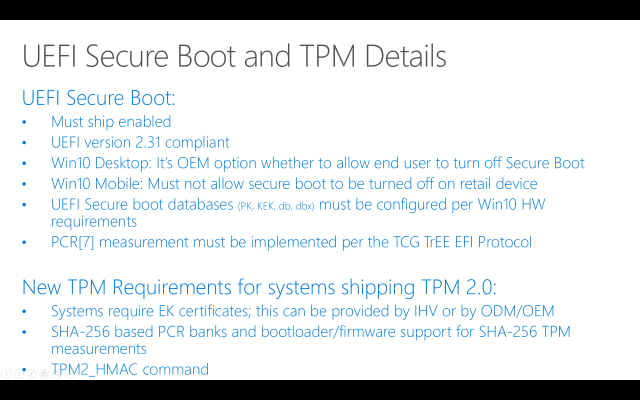Microsoft is reportedly making it harder to install an alternative operating system on computers that run Windows 10 using an OEM license. The company will allow PC manufacturers to no longer include a setting that allows users to disable Secure Boot in UEFI.
(Image credit: Ars Technica)
When users can't disable Secure Boot, it becomes harder to use a different OS on the system. The information was found on a slide that was presented during Microsoft's hardware conference WinHec in Shanghai.
The slide states that it's up to the PC manufacturer to include a setting to turn off Secure Boot. Microsoft previously required PC manufacturers to allow users to disable Secure Boot, something that now appears to become optional.
Microsoft also states on the slide that computers running an OEM license of Windows 10 will have to come with Secure Boot enabled by default.
Secure Boot is actually a desirable security feature, it protects the system against malware that can interfere with the boot process. When Secure Boot is enabled it checks cryptographic signatures of important components involved in booting the computer. If Secure Boot detects any tampering the system won't boot.
However this also affects custom operating systems or less popular Linux variants that need to change the bootloader. Popular Linux variants such as Ubuntu are not affected, they usually come with proper cryptographic signatures.
Users who experiment with alternative operating systems will no longer be able to start their computer if Secure Boot can't be disabled. This likely affects only a small group of tech savvy users, but it does limit what they can do with a device they own.

















